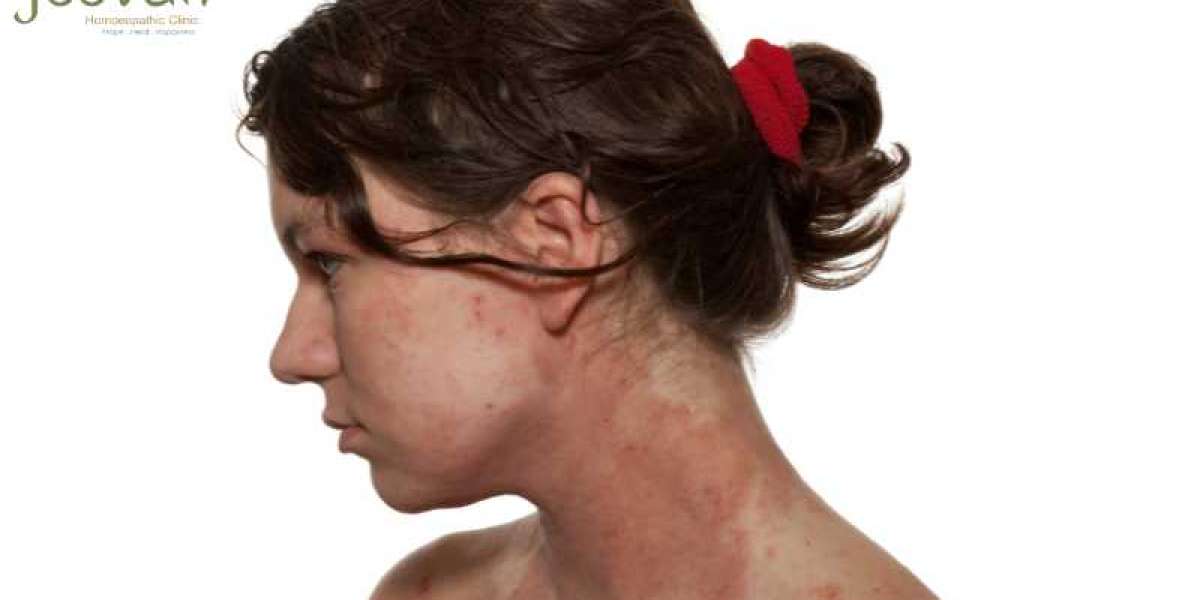Fed up with dealing with the unpleasant effects of dermatitis? From irritation and scratching to parched, flaky skin, living with dermatitis can pose a daily obstacle. But fret not, as there are efficient methods to handle this condition and enhance your overall well-being. In this article, we will delve into the origins, signs, remedies, lifestyle adjustments, coping techniques, and support options for those living with dermatitis. Whether you desire relief or are seeking more knowledge on how to navigate life with dermatitis, continue reading for beneficial insights and advice!
Symptoms and Causes of Dermatitis
Redness, itching, and discomfort are symptoms of dermatitis, a common skin condition characterized by inflammation. It is possible for dermatitis to be caused by genetics, allergies, irritants, or environmental conditions. Certain foods or chemicals may exacerbate symptoms for some people.
Dermatitis can cause dry skin, rash-like patches, swelling, and even blisters in severe cases. It's important to pay attention to these signs because early detection can lead to better management of the condition. Dermatitis can manifest differently from person to person based on their unique triggers and sensitivities.
In the event of persistent dermatitis symptoms, it is imperative to seek medical advice for a proper diagnosis and treatment. Individuals can effectively manage their dermatitis by understanding the underlying causes and recognizing the symptoms early on.
Dermatitis types
Dermatitis comes in a variety of forms, each with its own characteristics and triggers. The most common types are atopic dermatitis (eczema), contact dermatitis, seborrheic dermatitis, and dyshidrotic eczema. Often seen in children, atopic dermatitis can persist into adulthood and manifests as red, itchy patches on the skin. For personalized and holistic care options, consider consulting with the Best Homeopathy Doctor in Pune for skin-related concerns.
In contact dermatitis, the skin reacts to irritants and allergens, such as soap or metals. Seborrheic dermatitis affects the scalp, face, and chest, resulting in scaly patches. The symptoms of dyshidrotic eczema include tiny blisters on the hands and feet.
You should consult a healthcare professional for a proper diagnosis and personalized care plan based on your symptoms if you have dermatitis.
Dermatitis Treatments
Dermatitis can be difficult to manage, but there are various treatments available to help alleviate symptoms and improve skin health. Using topical corticosteroids to reduce inflammation and itching is one common treatment option. Different strengths of these medications are available based on the severity of the dermatitis.
In addition to moisturizers and emollients, antihistamines may also be prescribed to relieve itching and discomfort associated with flare-ups of dermatitis.
By reducing inflammation and promoting healing, phototherapy or light therapy can be beneficial for certain types of dermatitis. In contrast to conventional treatments, homeopathy is a holistic approach that stimulates the body's self-healing mechanisms.
A dermatologist or healthcare professional can determine the most suitable treatment plan based on individual needs and the type of dermatitis being experienced.
Changes in lifestyle to manage dermatitis
It can be challenging to live with dermatitis, but making lifestyle changes can help manage symptoms effectively. One crucial aspect is to identify and avoid triggers that exacerbate flare-ups.
Keeping the skin moisturized helps create a protective barrier against external aggressors. It is important to maintain a consistent skincare routine that uses gentle, fragrance-free and hypoallergenic products.
You can reduce friction and irritation on your skin by wearing loose-fitting clothing made of soft fabrics like cotton. As stress is often linked to dermatitis flare-ups, it may be helpful to practice stress-reducing activities such as yoga, meditation, or deep breathing exercises.
In order to keep your skin healthy, you need to drink an adequate amount of water daily. Getting enough sleep is critical for the body's healing process and for maintaining a strong immune system.
Dermatitis Coping Strategies
It can be difficult to live with dermatitis, but there are coping strategies that can help individuals manage their symptoms and improve their quality of life. Finding and avoiding triggers that aggravate flare-ups can be an effective way to cope with dermatitis. These triggers may include allergens, irritants, or stressors.
You may also find relief by developing a skincare routine using products recommended by a dermatologist or best homeopathy doctor in Pune for skin, such as Dr. Tushar Mishra. In order to prevent dryness and maintain the skin's barrier function, moisturize regularly and avoid hot showers.
Emotional triggers that may worsen dermatitis symptoms can be managed by practicing stress-reducing techniques such as mindfulness meditation or yoga. A sense of understanding and camaraderie can also be provided during difficult times by seeking support from friends, family, or online communities of people with dermatitis.
As well as managing dermatitis effectively, maintaining a balanced diet, staying hydrated, getting enough sleep, and exercising regularly can contribute to overall well-being. Dermatitis sufferers can better navigate the challenges associated with this condition by implementing these coping strategies into daily routines.
Dermatitis Support and Resources
Dermatitis can be challenging, but it's important to remember that you're not alone. You can make a huge difference in how you cope with it if you seek support from others who understand what you're going through. A sense of belonging and valuable insights into managing the symptoms can be found in connecting with online communities and support groups dedicated to dermatitis.
For staying informed and empowered, it is crucial to access reliable resources about dermatitis in addition to seeking emotional support. It is important to find reputable websites, medical journals, and books that provide current information on treatments, lifestyle changes, and coping strategies for those with dermatitis.
Moreover, healthcare professionals specializing in skin conditions such as dermatologists or homeopathic doctors in Pune such as Dr. Tushar Mishra can provide customized guidance tailored to your specific needs. If you are experiencing dermatitis, please don't hesitate to seek professional assistance. There are resources available to help you along the way.
In conclusion
Dermatitis can be a challenging condition, but with the right management strategies and support, it can be managed effectively. Individuals can find relief from this skin condition by understanding the causes and symptoms, exploring different types of treatments, including homeopathy, changing their lifestyles to avoid triggers, and using coping strategies to deal with flare-ups.
It is important to remember that you can effectively manage dermatitis by seeking professional help from experts like Dr. Tushar Mishra, one of Pune's best homeopathy doctors for skin issues. With dedication and a proactive approach to your health and well-being, living with dermatitis doesn't have to hold you back. Stay informed, stay positive, and empower yourself to take control of your skin health journey.


